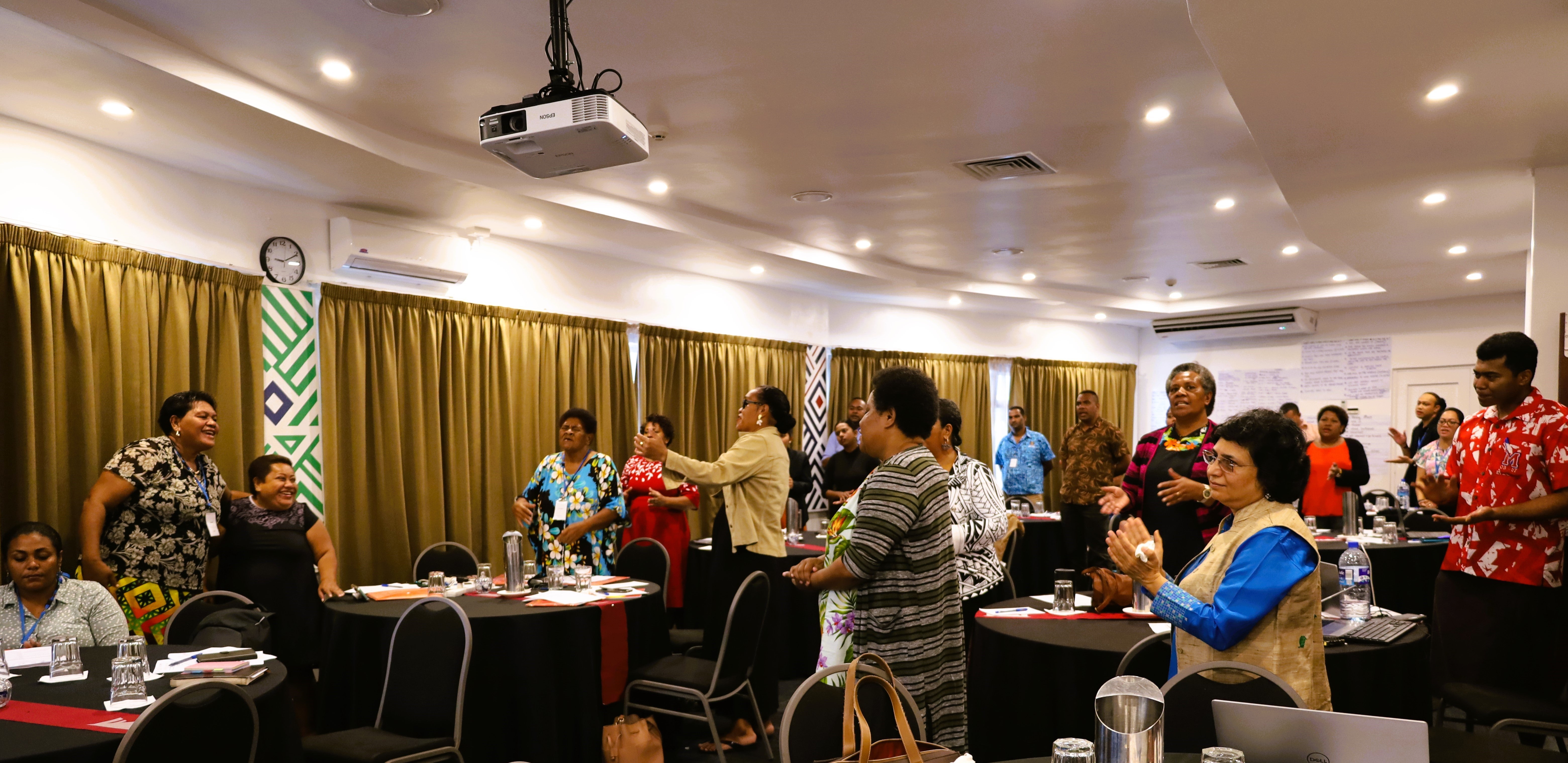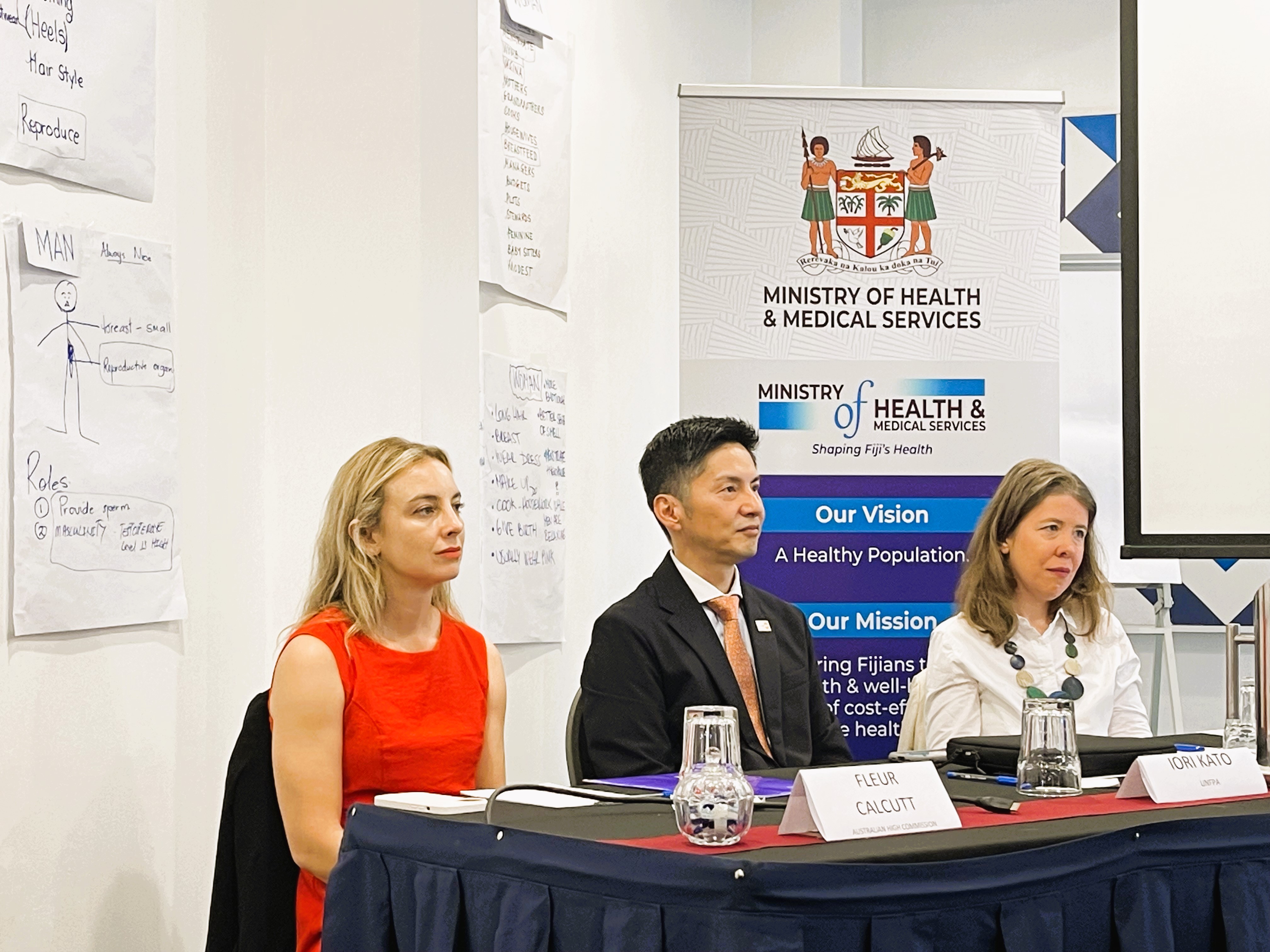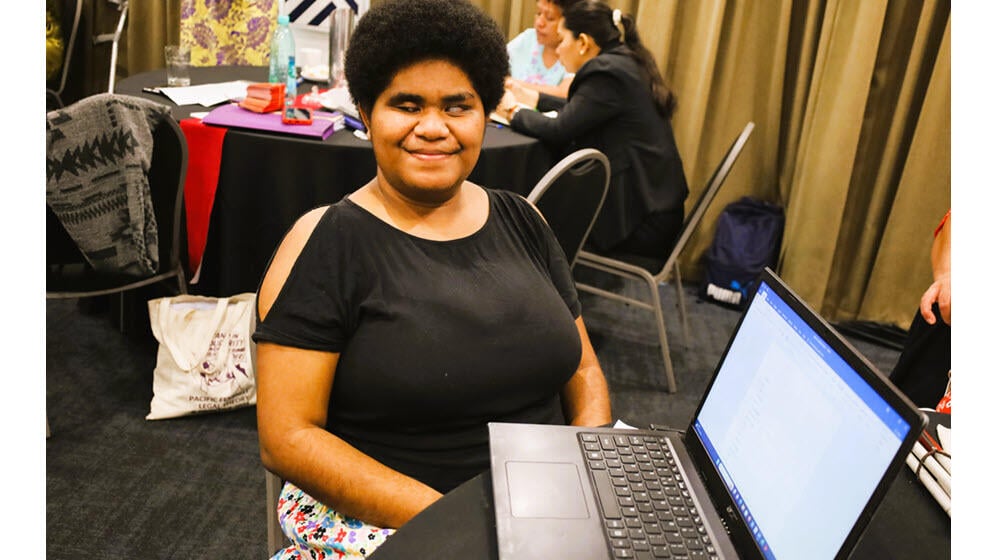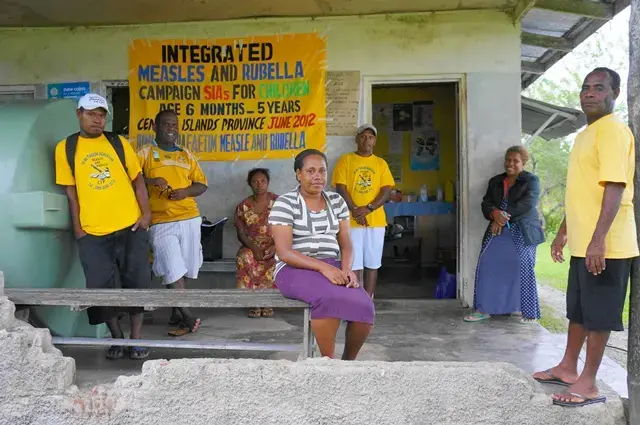SUVA, Fiji - “This training is crucial for ensuring that everyone, including persons with disabilities (PWD), has access to the social services that one deserves, including sexual and reproductive health (SRH),” said Naomi Lewakita, a 19-year-old person with a disability attending the training that the United Nations Population Fund (UNFPA) is organizing this week in Suva. '”This gives us a platform to voice our opinions regarding SRH services for PWDs. For instance, service providers must ensure that their services and communications are designed and delivered to cater for the specific needs of persons with different disabilities. This will significantly improve the accessibility and effectiveness of SRH care for persons with disabilities in our communities.”
A 2023 report by the World Health Organization (WHO) estimated that 16% of the world's population has a disability. This translates to approx. 1.7 million people in the Pacific. Persons with disabilities, particularly women and young girls, often face significant barriers in accessing critical information and services regarding their health and dignity.
Indeed, a report that UNFPA, the Pacific Disability Forum (PDF) and Women Enabled International (WEI) jointly published in 2022 about the results of needs assessments conducted in Fiji, Samoa and Vanuatu, revealed a disparity in the levels of knowledge about SRH between persons with disabilities and those without. This lack of knowledge resulted in PWDs experiencing limited access to SRH services, compounded by the lack of awareness among healthcare providers, and physical inaccessibility of facilities.
To address the results of the needs assessment exercise, Fiji’s Ministry of Health and Medical Services (MHMS) and non-governmental Organizations of Persons with Disabilities (OPDs) such as PDF and the Fiji Disabled People's Federation, as well as other NGOs including WEI and the Medical Services Pacific have joined forces with UNFPA Pacific to design and pilot a “Community-Based Sexual and Reproductive Health Officers Programme for Persons with Disabilities.” This programme, led by PWDs, is aimed at sensitizing and empowering young men and women with disabilities about sexual and reproductive health and rights. It also raises awareness among communities and service providers about the importance of ensuring that PWDs have access to information and services related to their SRH and protection from gender-based violence (GBV).
The pilot initiative launched in 2022 has reached an important milestone this year 2024, as MHMS has committed to integrating disability inclusion into their regular outreach programme. This is significant as it will help ensure the initiative's long-term sustainability. The Ministry of Women, Children and Social Protection (MWCSP), the lead ministry for disability inclusion, has recently joined this programme.
Sexual and Reproductive Health Officers, Disability Inclusion Officers and other officials from various Divisions across the country, along with other service providers and key partners are gathering in the capital city this week from 7-12 July to go through a series of training that UNFPA Pacific is organizing to strengthen their capacity to deliver SRH and GBV services to PWDs.

“This training program is a crucial step towards ensuring that persons with disabilities’ sexual and reproductive health needs are met. Service providers will acquire necessary knowledge and skills to better deliver information and services to PWDs for SRH and GBV prevention, ensuring equity, accessibility and quality,” said Iori Kato, UNFPA Director for the Pacific Island Countries and Representative in Fiji.
This initiative is part of UNFPA’s flagship programme, Transformative Agenda for Women, Adolescents, and Youth in the Pacific (TA), funded by the Australian Government’s Department of Foreign Affairs and Trade (DFAT). UNFPA supports disability inclusion as a pathway towards more inclusive and equitable healthcare systems in Fiji and other TA programme countries in the Pacific, through a ‘twin-track’ approach of combining targeted interventions specifically aimed at persons with disabilities, and mainstreaming the needs of persons with disabilities across different interventions under the TA programme.





